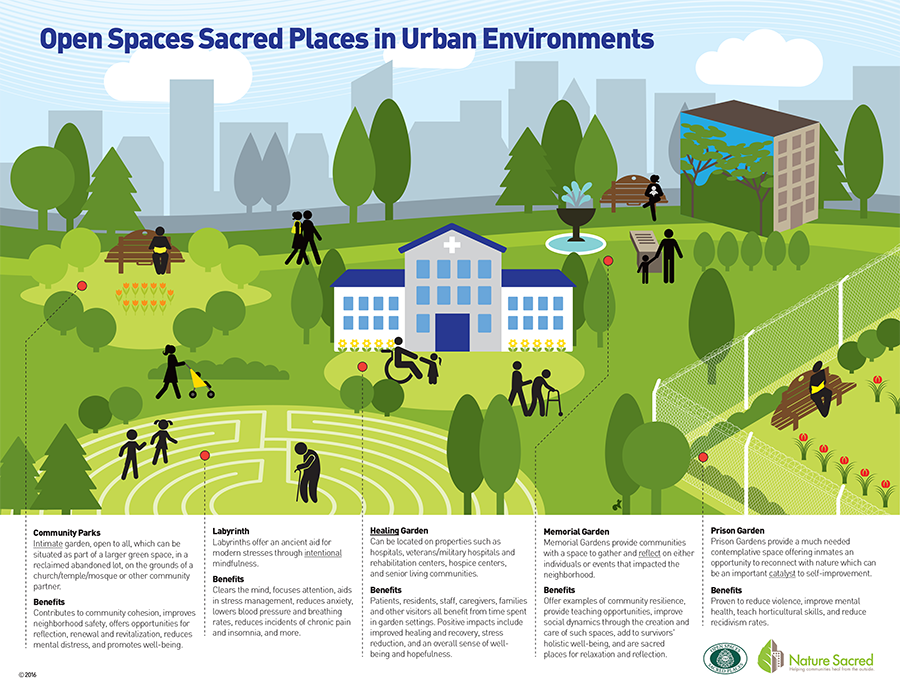
For more than 25 years, TKF has partnered in the creation of 130+ Open Spaces Sacred Places, most of which are found in urban environments. From housing projects to hospitals, TKF Open Spaces Sacred Places provide a place for visitors to reflect, find solace and immerse themselves in the healing power of nature. Our latest partner projects seek to scientifically prove the inherent value and need for nearby, open access to urban nature.
Although all TKF Open Spaces Sacred Places include the same key elements such as the bench and journal, the locations found within urban environments can take a number of forms. The infographic above highlights the features found in TKF Open Spaces Sacred Places and the benefits associated with these features.
Features and Benefits of TKF Open Spaces Sacred Places
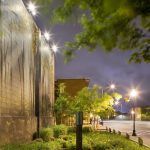
Community Parks
Intimate garden, open to all, which can be situated as part of a larger green space, in a reclaimed abandoned lot, on the grounds of a church/temple/mosque or other community partner.
Benefits
Contributes to community cohesion, improves neighborhood safety, offers opportunities for reflection, renewal and revitalization, reduces mental distress, and promotes well-being.
Labyrinth
Labyrinths offer an accent aid for modern stresses through intentional mindfulness.
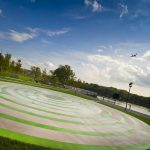
Benefits
Clears the mind, focuses attention, aids in stress management, reduces anxiety, lowers blood pressure and breathing rates, reduces incidents of chronic pain and insomnia, and more.
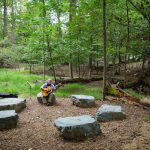
Healing Garden
Can be located on properties such as hospitals, veterans/military hospitals and rehabilitation centers, hospice centers and senior living communities.
Benefits
Patients, residents, staff, caregivers, families and other visitors all benefit from time spent in garden settings. Positive impacts include improved healing and recovery, stress reduction, and an overall sense of well-being and hopefulness.
Memorial Garden
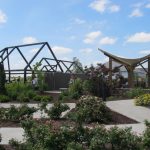
Memorial Gardens provide communities with a space to gather and reflect on either individuals or events that impacted the neighborhood.
Benefits
Offer examples of community resilience, provide teaching opportunities, improve social dynamics through the creation and care of such spaces, add to survivors holistic well-being, and are sacred places for relaxation and reflection.
Prison Garden
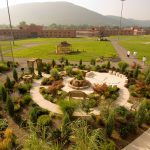
Prison Gardens provide a much needed contemplative space offering inmates an opportunity to reconnect with nature which can be an important catalyst to self-improvement.
Benefits
Proven to reduce violence, improve mental health, teach horticultural skills, and reduce recidivism rates.
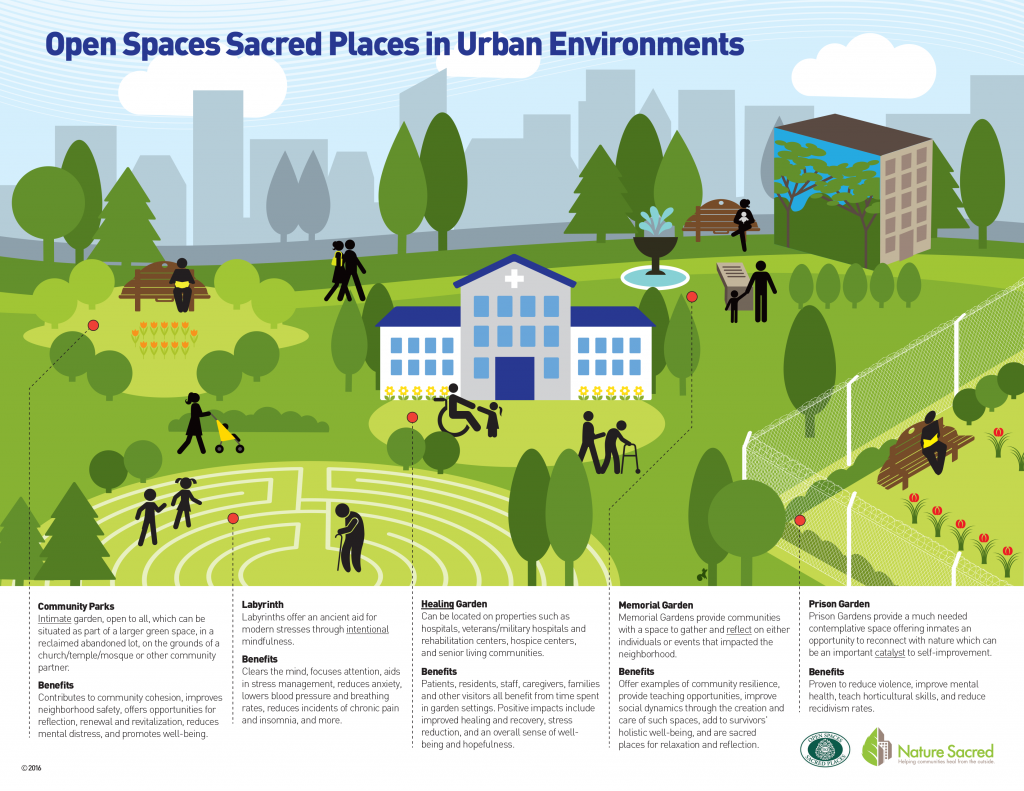
Please use the code beow to share the infographic on your website.
